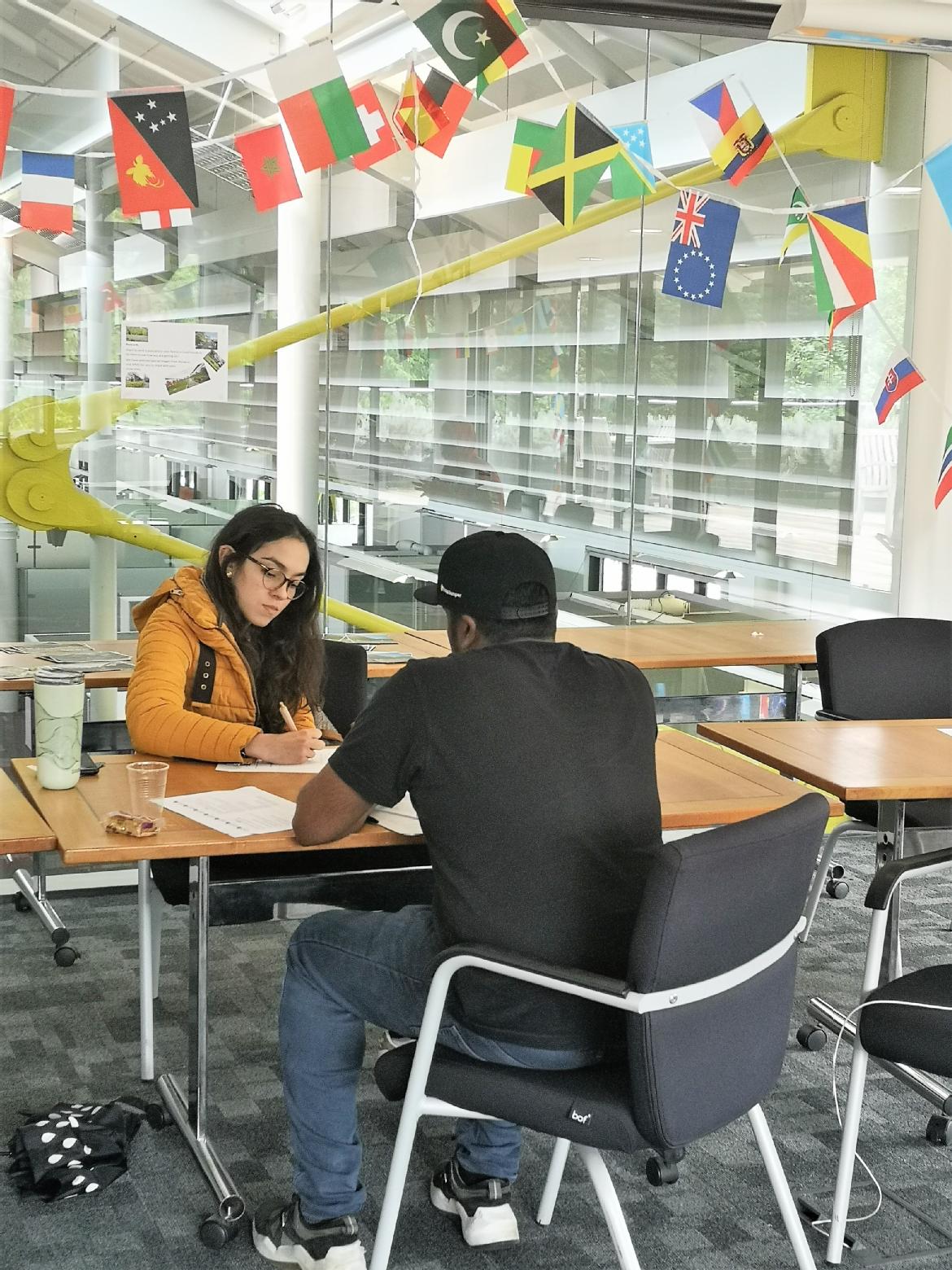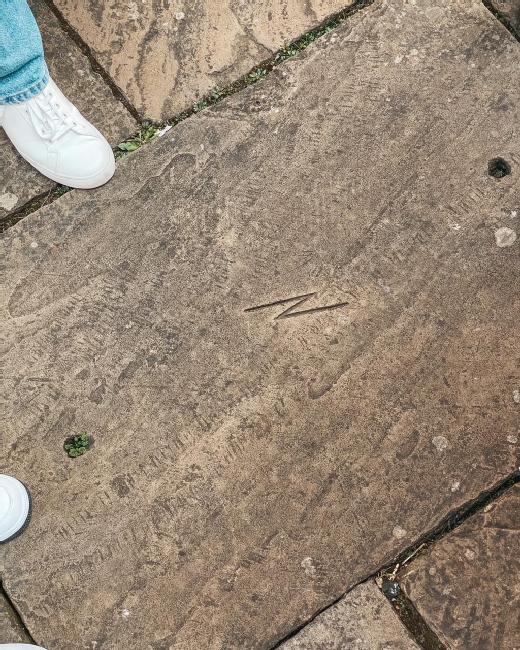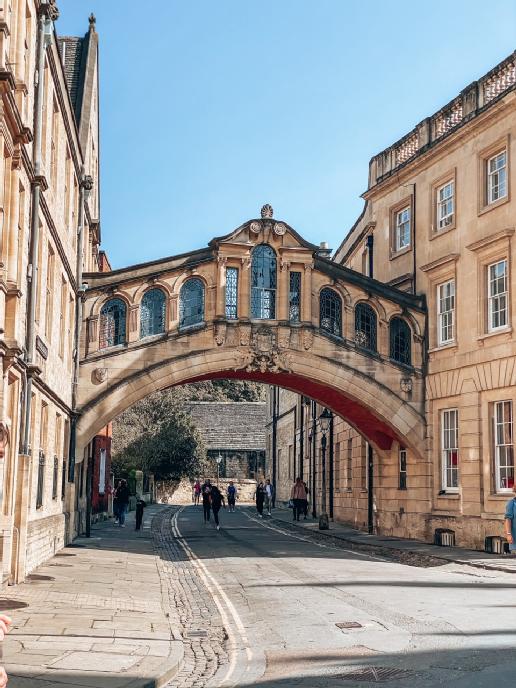Student Blog Collection
Why Living Abroad Can be the Best Decision you Ever Make
Some may be getting ready for their adventure abroad whilst others might still be considering whether or not to take the leap. People may be reluctant to embark on such an adventure for various reasons; love for their home country, adaptability, personal relationships, work, the list is endless. For some it may be a scary thought, but the truth is that change is a natural progression of life. If living abroad is not something you have previously considered or if you are on the fence and need that final ‘push’ to make up your mind, then keep reading to find out 4 reasons why living abroad can be the adventure of a lifetime.
1. You become independent
When living abroad, particularly if you live on your own for a period of time before you meet new people and make new friends, you inevitably become more independent. This is particularly true, as staying in your comfort zone and the same places you grew up knowing, is not likely to challenge you or encourage you to become self-reliant and autonomous. You are responsible for your nutrition, accommodation, you learn to take care of bills, and you are encouraged to socialise and create a new circle of friends. It takes courage to leave your current ‘comfortable’ situation behind and head towards an unknown direction where everything is different, but gaining your independence is well worth it.
2. You become adaptable and open-minded
It is no small feat turning into a chameleon and adapting to new environments. You become more open-minded by realising that the world functions in different ways than you were accustomed to. You learn about new cultures, and you get excited with small, daily accomplishments, even if these are boiling an egg to perfection for the first time ever. Your new friends may not speak the same language as you, as such you learn to adapt to obstacles imposed by language barriers. It is really a pity not having felt such emotions; emotions which can only be truly understood when living abroad and mapping out your own journey.
3. You become brave and courageous
It would not have been possible to not include the bravery and courage needed before such a trip, where one discovers a completely new identity. Indeed, it is difficult to leave behind the comfort of what is known to embark on the unknown, with new dreams, hopes, and goals to accompany you on this new experience, but if you are brave enough to own this journey, I can guarantee it will be the best decision you ever make.
4. You get to know yourself better
Lastly, it is impossible for someone to live abroad and not discover new aspects of themselves and their intricate personalities. It is indeed a shame when people reach a point in their lives where they don’t know who they truly are or what they have contributed to the world during their short existence on this planet. It is not necessary for someone to leave their home country to discover themselves and grow through this journey of self-discovery, however one such outcome can be achieved through a life-changing adventure described in this post. Why is it worth living abroad even just once in your life, then? First and foremost, for yourself; each person will then choose their own denominator to this adventurous equation that is experiencing life abroad.
Living in a foreign country is not for everyone and this is absolutely acceptable. If everyone chose to embark on such an adventure, it wouldn’t be described as such an enriching experience of inner growth. Nonetheless, it is an effective way of reaching your goals of personal growth and self-discovery in a much faster and unforgettable way.
Have a lovely week ahead!
Artemis Panteli
MSc e-Business Management (Digital Marketing)
World at WMG-Languages Café
As you have probably realised by now, studying at Warwick is an opportunity for you to be part of a diverse cultural mix of students, to develop your intercultural awareness and create lifelong friendships. In order to do this, a number of events are organised throughout the year, for students from different countries to become acquainted with each other and learn about distant cultures. One such event is the World at WMG day and the Languages Café organised as part of the celebration, which is an opportunity for students to celebrate cultural diversity at WMG by learning a few words and sentences in a different language.

The event is mainly an informal gathering, where students come and sit at a table where a tutor provides them with a handout with some sentences in English and the translation in their own language (e.g. Spanish, French, Greek etc.). Students try to learn these sentences with the tutor and are asked to repeat each sentence a few times to help them get the right pronunciation. The casual set-up is very inviting and really helps those who are intimidated by the idea of socialising or speaking a completely new language relax and have fun. Refreshments and snacks are also provided, which provide a great opportunity for students to get to know each other and their respective cultures.
Developing one’s intercultural awareness is a key professional skill and something that will be very useful when working as part of a team, whether in an academic setting or a professional one. After all, as an international student in a foreign country, it is a great opportunity to meet fellow international students and expand on one’s intercultural horizons.
Wishing you all a lovely weekend!
Artemis Panteli
MSc e-Business Management (Digital Marketing)

Developing Transferrable Skills
University life is a great way to immerse yourself in various activities and events, whether these are networking events, social events, or academic workshops. Since you will most likely be looking for a job shortly after completing your Postgraduate degree, your time at Warwick is a great opportunity for you to develop your transferrable skills, so you can demonstrate these on your CV and strengthen your application to stand out from other candidates. An excellent starting point would be the WMG Skills+ Programme, which focuses on the 12 Warwick Core Skills and consists of 6 stages:
Stage 1: The first stage is all about attending the introductory workshop where you can find out more details about what the programme entails and how you can go about completing it, as well as ask any questions you might have. After attending the workshop you can add the programme to your Moodle dashboard and move on to complete Stage 2.
Stage 2: This stage is about recording any activities you have been involved in since starting your course at WMG, as well as any events you have attended during your time here. These can range from professional webinars and careers workshops, such as ‘How to Write CVs and Applications’ or how to tackle challenging interview questions, as well as networking events and careers fairs which are held throughout the year. Keep an updated record of all the events you have attended, as these count towards completing Stage 2 of the certification. The more activities and events you attend, the faster you will progress to the 3rd Stage.
Stage 3: This stage is about completing and perfecting your LinkedIn profile. A checklist is provided with tips and advice on how to complete each section, so that you create a professional-looking profile. The great thing about the careers events and workshops you have attended to complete Stage 2, is that you can have your photo taken by a professional photographer, which you can then use for your LinkedIn profile. A great first step to completing this stage, indeed. You will then need to make sure you have an appropriate headline, a summary of your motivations, skills and aspirations, any relevant work experience, as well as your educational background and any volunteering activities. Don’t be shy in listing your skills-the more the merrier, as they say, and make sure you get your friends/colleagues/fellow students to endorse you and validate your expertise. Once you have successfully built your LinkedIn profile, you can then progress to the next stage of the programme.
Stage 4: In this stage, you will have the opportunity to revisit the 12 Warwick Core Skills in a checklist and select 6 skills which you are most confident to express and demonstrate either in a written or verbal format. The 12 Core Skills are: Communication, Critical Thinking, Digital Literacy, Ethical Values, Information Literacy, Intercultural Awareness, Organisational Awareness, Problem-Solving, Professionalism, Self-Awareness, Sustainability and Teamwork.
Stage 5: This stage is a written task. You will need to select 3 out of the 6 skills you have selected in the previous stage and write a paragraph explaining each skill and a time when you have demonstrated the particular skill. You will need to follow the STAR method (Situation, Task, Action, Result) and use an appropriate example for each skill. This exercise will also help prepare you for any competency-based interviews you might encounter when completing your job applications.
Stage 6: You have done remarkably so far and have finally reached the last stage of the programme! Well done! In this stage you will have the opportunity to attend an interview (either in person or virtually) where you will have the opportunity to talk about the remaining 3 skills of your initial skills selection. Be confident and follow the same STAR technique you used in the written task. Make sure you utilise different and varied examples for each skill. These can be academic, professional, or extra-curricular.
After successfully completing all 6 stages of the programme, you will be awarded with a Certificate of Completion which will state the skills you have developed and demonstrated throughout the programme’s duration. This will also look great on your LinkedIn profile, to showcase your skills and continuous development to potential employers, as well as on your CV as an additional qualification.
I hope you find this experience as fun and rewarding as I did! It is a great opportunity to develop your self-awareness by recognising your strengths and weaknesses and areas you might need to develop. After all, a master’s degree is not just about doing well in assignments but becoming a well-rounded and self-aware individual who is adequately equipped to enter the professional environment.
Best of luck!
Artemis Panteli
MSc e-Business Management (Digital Marketing)
Dissertation Dilemmas
If studying on the e-Business Management course, you will be asked to select a Dissertation topic and Supervisor shortly after joining the program. This will be done through a Project Selection System where you will be able to browse the different topics available for you to choose from and you will also notice that you will have the opportunity to select your own topic, under ‘Student-Defined Project’ options. There were several topics I personally found to be very interesting and aligned with my chosen degree specialism, as well as future career endeavours. Nonetheless, other than the topic, finding the right supervisor is another important factor that must be considered.
Selecting a supervisor is almost as important as choosing the topic of your dissertation. After all, you will be studying, researching, collecting data, analysing case studies, and compiling this information for the next 8 months, which will also bring your Postgraduate degree to its long-awaited conclusion. After deciding on 3-5 topics that are of interest to you, you will then request an interview with the supervisor of each of these projects. For the interview, you will need to be prepared to discuss with the supervisor why you want to research that particular topic, what it is that you find interesting about it, how you intend to collect your data and how it is associated with your future career aspirations. You will need to demonstrate you have enough knowledge to undertake that project and will be willing to work hard and meet tight deadlines to deliver this project to the best of your ability. If successful, the supervisor will then let you know whether you should go ahead and apply for the project and whether they would be happy to assist you on this journey. Make sure to let your passion and determination to put in the work shine through, as this will be a two-sided relationship. Your supervisor will provide you with as much as you are willing to put in, so it is important to remember to maintain an important balance between work and feedback.
Other than the student-topic fit, the student-supervisor fit is also very important. You will need to make sure that your supervisor is someone you can reach out to at any given moment for any questions, clarifications, or general guidance whenever you feel unsure of how to approach certain aspects of your project. You need to ensure that you can communicate with them and will feel supported during this critical and somewhat daunting time in a postgraduate student’s life. Even if the topic might be of interest to you, if you do not feel the supervisor is the right fit for you, then think twice before applying for the project, as once you have been accepted by the supervisor, it is not possible to change your choice. It is not a decision you should take lightly and something you should spend time thinking about carefully.
I am sure that no matter what you decide to research and write about for your project, all the blood, sweat and tears will not go unrewarded. After surviving numerous hours of lectures, writing countless PMAs and spending hours with your teammates trying to perfect that IMA presentation, the dissertation submission will be the culmination of a most challenging, but fulfilling journey.
Best of luck!
Artemis Panteli
MSc e-Business Management (Digital Marketing)
A day trip to Oxford
Hello everyone, hope you’ve had an amazing week!
My week ended on the best note, and that was a day trip to Oxford with friends. I enjoyed every second of it and learned some interesting facts about this city, which I thought I would share with you here 😊
Studying and remaining on top of academic commitments is essential when completing a postgraduate degree. Nonetheless, taking some time off to relax and do something fun with friends, like visiting new places, is highly recommended, particularly if you are an international student and haven’t had the opportunity to explore the UK.
The great thing about living in Coventry is that many major cities are just a short train ride away. Oxford, for example, can be reached via a 48-minute direct train from Coventry Rail Station. Renowned for its University, I was amazed by the beauty and vibrance of this city, as well as the history surrounding it. The architecture is out of this world, and each building has its own story and significance. The little shops and picturesque narrow alleys resemble sceneries from Harry Potter movies. In fact, Oxford is a must-visit place for any true Harry Potter fan, as numerous locations in Oxford were used for the movies’ filming purposes.
As we were a group of 25, we decided to book a private guided tour of Oxford, which lasted about 1.5 hours. This is highly recommended, as it only cost £5 per person and gave us the opportunity to learn lots of interesting facts about this place, which otherwise wouldn’t have been possible. Our tour guide, Debbie, was one of the most funny, enthusiastic, and energetic tour guides I have ever had the pleasure of meeting and she truly made the tour very enjoyable. I didn’t even realise how fast the time went by!
Some fun (and surprising!) facts I learned about Oxford:
- Rowan Atkinson actually graduated from The Queen’s College, Oxford, therefore you will see many souvenirs and memorabilia portraying his famous character Mr. Bean! He lives just outside Oxford and visits Oxford mainly when the town is quiet. Sadly, he doesn’t drive a Mini.
- Townies and Gownies- these terms are often used in university towns, such as Oxford. ‘Townies’ refer to the non-academic population, whereas ‘Gownies’ (yes, you’ve guessed it!) refer to the students attending one of the University’s Colleges, who are often seen roaming around in their university gowns.
- When it comes to ‘Gownies’-The longer the gown, the higher the degree title. Undergraduates, for instance, are often seen wearing a gown just above the knee, known as the ‘Oxford Commoners Gown’. Upon graduation, they change into a longer gown to signify the completion of their degree. The graduation ceremonies are actually pretty spectacular as our tour guide described and are deeply entrenched in the University’s traditions.
- The Bodleian Library holds a copy of every book to be published in England since 1610.
- It is believed that J.K. Rowling got the inspiration for Harry Potter’s lightning bolt scar in Oxford (see picture below).
- One of the city’s most photographed spots is Hertford Bridge (or most commonly known as the Bridge of Sighs), which people mistakenly compare to the famous Bridge of Sighs in Venice, due to its distinctive design. The bridge was built to connect Hertford College to New College Lane.
- J.R.R. Tolkien (writer of the world-famous The Lord of The Rings and The Hobbit) studied at Exeter College, Oxford (see picture below for dormitory).

Radcliffe Camera (The Bodleian Library)

The inspiration behind Harry Potter's scar

Bridge of Sighs (Hertford Bridge)

Exeter College (J.R.R. Tolkien's college)
I am certain that if you do get a chance to visit Oxford, you will find out even more interesting facts about this fascinating place. Needless to say, Oxford is not only filled with breath-taking views and sceneries, but it is also home to some of the greatest literary minds and has provided filming locations for numerous movies and TV-shows. Its charm and beauty are undeniable, and it is definitely a must-visit place during your time at Warwick.
Have a fantastic week!
Artemis Panteli
MSc e-Business Management (Digital Marketing)
Plan A/Plan B/Plan C...
As a postgraduate student, you are often confronted with the question "What are your plans after graduation?" For many, the answer may be straightforward, but for others like me, the answer may be more complicated.
Whether you are looking for a job or whether you do not have any concrete career plans at the moment, it is very reassuring to know that there is an endless amount of guidance and support available from the University, as well as several careers events held throughout the year. During these events, you have the opportunity to learn more about careers within the UK and internationally, as well as network with WMG alumni and professionals who are thriving in the business domain.
It is for this reason that I have recently attended the International Careers Day and would like to share my experience with you. The day started off with a panel of speakers from various educational and professional backgrounds, who shared their experience of looking for a job after graduation, as well as top tips for succeeding in interviews and what to avoid. Some of the key takeaways were being honest about the things you can and can’t do, not overselling yourself and definitely being enthusiastic about the role you have applied for and knowing enough about the company to convince the recruiter you are genuinely interested in working at their company.
The day continued with a series of workshops from which you could choose the ones you were interested in and book attendance in advance. The first one I attended was called ‘’What Questions to expect in Interviews and How to Answer Them”. I found this workshop extremely useful and informative, as it offered a range of resources on tackling those difficult interview questions, such as strengths-based ones, which are usually less predictable than competency-based questions. The presenters also provided information on the newly launched careers platform available to all University of Warwick students, called eCareersGradLink opens in a new window, which provides video examples of both good and poor responses to a range of interview questions, which you can use to practice in advance of any upcoming interviews.
The second workshop I attended was called “Develop your Global Mindset to shine in the Multicultural World of Work” and was focused on developing one’s intercultural awareness and how this skill can be improved in both academic and professional contexts. A combination of quizzes and exercises made this workshop interactive and fun, and it was interesting to see how people perceived situations differently; for instance, for some it was perceived rude to be on the phone at the dinner table, whilst for others this was considered normal. Needless to say that there was no right or wrong answer, and hearing others’ opinions on different behaviours was quite eye-opening.
Apart from the opening panel and various workshops that took place throughout the day, students had the opportunity to have their LinkedIn profile picture taken free of charge by a professional photographer, which is a great opportunity to take advantage of, if you have yet to build your professional LinkedIn profile. First impressions matter, and social platforms, particularly professional ones, can make a world of a difference when you are trying to enter the job market and set yourself apart from the competition.
As an international student myself, I found this event to be very useful for my professional development. It hadn’t crossed my mind that certain situations and behaviours are in some cultures, perceived in a completely different light. And this is what makes us all unique. Also, if preparing for interviews is stressful and draining, just remember that there is a plethora of information at your disposal on how best to prepare for them and pave your way to success.
However, it is also normal to not have your future mapped out yet. Not everyone knows what they would like to do in 5 months or a years’ time and that is okay. Do not panic if your friends have a job and you don’t; this is just part of the process and one that will prepare you for whatever is coming your way after graduation. Don’t forget to give yourself a pat on the back; you have already made it this far and great things lie ahead of you. You just have to be patient, optimistic and look out for opportunities to make the most of the events and resources available to you.
Artemis Panteli
MSc e-Business Management (Digital Marketing)
Managing Group Dynamics
As a WMG student, you will find that significant emphasis is given on group work and group assignments. This is called the IMA; In-Module-Activity. This is not only part of your learning experience at Warwick, but also a means to prepare you for your future professional career.
You will often find yourself working with people from different countries, who speak a different language and are from different educational backgrounds. As such, it goes without saying that group work and collaboration can sometimes be a tricky mission. Whether you dislike group work or get really excited about it, here are some tips to guide you through the challenging yet rewarding task of working with others.
1. Don’t be afraid to make the first step
When you see your group members kind of keep to themselves, take the initiative to introduce yourself and show how approachable you are. This way, you will encourage your team to open up and follow your lead by introducing themselves and ‘breaking the ice’. Once everyone feels more comfortable in the team, it will then be easier to define roles and responsibilities, allocate tasks and work together towards a common goal. Don’t be afraid to lead by example; be confident in sharing what you hope the group outcome will be and motivate others in your team.
2. Communicate openly
Open communication is vital to fostering good group dynamics, therefore you need to ensure that everyone is communicating openly and clearly. Emails and shared documents are a good starting point to make sure everyone is on the same page, particularly when working with group members who may be unable to be physically present during team meetings.
3. Be respectful
Here at Warwick, you will find a mixture of a diverse cultural blend, which is something I have found to enhance the uniqueness of the student experience. It is a great opportunity to interact with people and cultures far from your own, and maybe learn something about them that a quick Google search may not easily divulge. As such, it is important to recognise that different cultural backgrounds may sometimes mean different views and opinions, therefore it is worthwhile to keep an open mind and respect others’ perspectives.
4. Don’t listen to reply-listen to understand
Although team conflict and disagreements are sometimes to be expected, it is important to be an active listener. When you find yourself disagreeing with a team member’s views, make sure you listen to understand where they are coming from and why they believe something should be done in a certain way. Do not just wait for them to finish so that you can express your contradictory views; listen to them to fully comprehend their views and you may find you need to adjust your approach around their ideas and suggestions.
However…
Be careful of frequent unanimous decisions, as these may be an indication that people may lack the confidence to present opposing viewpoints to a dominant idea within the group. Although an agreement needs to be reached at the end of the day, it is important that everyone gets to share their thoughts and opinions on the topic before reaching a conclusion. If you feel that quieter team members tend to be overwhelmed by opinionated team members, then you may need to consider finding new ways to encourage them to communicate their views with the rest of the team. It is important that everyone feels heard and included.
Indeed, group work is a great way to cultivate not only teamwork skills, but also your creativity and problem-solving capabilities; skills which are not only extremely valuable in the professional domain, but also in life in general. Despite the occasional challenges that may arise, working with others is a great way of meeting new people and potentially building life-long friendships. Therefore, my advice to you would be to not underestimate the innumerable benefits of working with others. Great things are rarely done in isolation and usually take a team of extraordinary individuals and some serious brainstorming activity!
Artemis Panteli
MSc e-Business Management (Digital Marketing)
You have been accepted! Yay! What's next?
You have just received the coveted letter of acceptance from WMG. Well done! Now, what’s next?
If you do not already know, WMG is offering the WMG Excellence Scholarship to students commencing their study on full-time MSc programs in October 2022. The WMG Excellence Scholarship is a merit-based award offered on a competitive basis. The application is judged on reasons for study, past academic achievement, professional experience, and your vision for the future. As a WMG Excellence Scholarship awardee myself, read on for my top tips on nailing your scholarship application.
1. Dare to dream BIG
The first question is all about your motivations for studying the particular MSc course you have applied for, as well as your future plans after graduation. This can be a daunting question; thinking about where you see yourself in the next 5 years, when you are unsure of what the next day has in store for you. It is even harder responding to this question in professional interviews (I, myself can vouch my detest for this question). But take some time to think about the question before starting to type your response. Where do you see yourself? Studying? Working? Traveling? What excites you? What are you passionate about? What is the difference you would like to make in the world? Let your imagination run wild and free and think about your greatest ambitions and desires. Be fearless, imaginative, and bold. There really is no wrong answer and the more creative, the better. If you are passionate about sustainability and environmental awareness, then write about an ethical organisation you would see yourself working at. If you have seen a campaign by a brand that resonated with you, then write about how you would have liked to be a part of the marketing team that pulled it together. As cliché as it may sound, the sky really is the limit.
2. Not the time to be modest
The second question focuses on your past experience, which can be either professional or voluntary, as well as any extra-curricular activities you have been involved in and how these relate to your MSc program. This is the time to talk about all the skills you have amassed from previous work experience; these can be great written and communication skills, which will help you in assignment-writing and teamwork, or it can be volunteering and the great problem-solving and time-management skills you acquired. Whatever the experience, make sure to explain the situation, provide examples and relate these back to the course you have applied for. In this way, you will demonstrate great self-awareness about your current skill level, as well as what you hope to gain through the course you have applied for and how it will help you cultivate existing skills and new ones. Moreover, extra-curricular activities, such as sports and arts are definitely worth mentioning. If you have been part of a sports team, make sure to mention how you have developed the ability to work well with others, whereas if you are more on the ‘artsy’ side, make sure to talk about your creative skills and how these can be beneficial to your course. Remember: everyone has a talent and whatever yours may be, make sure your passion and excitement are reflected through your writing.
3. Be yourself
Lastly, and most importantly, be yourself. It may seem obvious but being yourself is the most important tip in succeeding, not only in the scholarship selection process, but in life in general. Even though this is a written application, I can tell you with utmost certainty that the person reading it will be able to understand whether you are genuinely passionate about the things you have mentioned. It is paramount that you are truly invested in achieving your vision, even if you do not have concrete career plans at the moment. Being authentic is far more important than pretending to have achieved something you have not. Confidence and honesty can be echoed through your writing and will increase your likelihood of success.
In order to be considered, it is important that you submit your scholarship application within four weeks of receiving your offer. For more detailed information about the application and eligibility criteria, please follow this linkLink opens in a new window.
I hope you find these tips useful and that you feel more prepared to tackle the application questions. Whatever the outcome, please remember you have had to go through quite a lengthy application process and have been offered a place to study at a world-class university. This is no small feat.
Best of luck!
Artemis Panteli
MSc e-Business Management (Digital Marketing)

